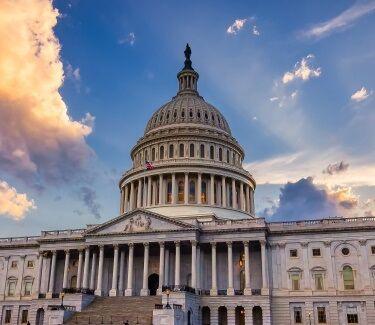“Daniel Lange Florence Kaleta”
Source: www.insideradio.com, February 2024
Keeping AM radio in cars to ensure public safety leads the list of policy priorities at the National Association of Broadcasters for the rest of the 118th Congress. The trade association’s just released 2024 Broadcasters’ Policy Agenda puts the hot-button radio issue at the top of its priority punch list, asserting that Congress should enact the AM Radio for Every Vehicle Act “to keep this vital service as a standard feature in all vehicles and ensure Americans’ public safety.”
As broadcasters continue to lobby for the bipartisan legislation (S. 1669; H.R. 3413), they are joined by a chorus of support from prominent emergency officials, recently amplified by last week’s widespread AT&T outage. “Losing cell service for significant periods does not just present work and scheduling inconveniences. It also poses grave threats to public safety,” Pete Gaynor, who served as Administrator of FEMA and Acting Secretary of the U.S. Department of Homeland Security, wrote in a recent op-ed piece for The Hill. Joining Gaynor in backing the AM radio bill is Daven Solis, who has worked with FEMA and the Department of Homeland Security. “When disaster strikes, citizens often lose power, and cell service becomes overloaded and goes down — just like it did last week. AM radio does not,” Solis explains. “It is far more resilient than other communications mediums,” he writes in a piece published by Real Clear Policy.
Apart from its importance during disasters, NAB reminds the nation’s policy makers that 82 million listeners tune to AM radio each month, especially agricultural communities that depend on the legacy band for critical weather updates, crop reports and local information. “AM stations also serve communities of color and underrepresented groups with religious and in-language programming,” NAB says.
The bill would direct the Department of Transportation to issue a rule requiring that AM broadcast stations be accessible in all passenger motor vehicles manufactured in, imported into, or shipped within the U.S.
Defending Local Journalism
Second among NAB’s policy priorities is an issue that affects the entire broadcasting industry: the economic threat posed by dominant Big Tech platforms on radio and TV’s ability to provide local journalism. “Big Tech platforms have a stranglehold on digital advertising and can dictate what, if any, revenue share broadcasters receive for their valuable content,” NAB says. “As Big Tech platforms dominate the advertising market, local broadcast revenue has significantly declined, making local journalism more difficult to support.” The argument is that local stations have little power to negotiate because they would lose access to hundreds of millions of consumers if they declined to publish their content online — and federal law prohibits them from working together to jointly negotiate with Big Tech behemoths. NAB continues to lobby for the Journalism Competition and Preservation Act (JCPA) (S. 1094), which would create a limited safe harbor from antitrust laws in order to allow news publishers and broadcast news operations to collectively bargain with a covered platform over the terms and conditions of the tech platform’s access to digital news content.
Blocking A Performance Royalty Mandate
Fourth among the organization’s Capitol Hill priorities is an oldie-but-goodie: opposing the American Music Fairness or AMFM Act (H.R. 791) that would require broadcast stations to pay royalties when they spin records. “This proposal would financially cripple local radio stations simply for airing music. It would jeopardize local jobs, stifle new artists and harm local radio listeners,” NAB says. The Local Radio Freedom Act (H.Con.Res.13), radio’s first line of defense against a new royalty, is supported by nearly 240 bipartisan members of the House and Senate this Congress – including close to a majority of the House of Representatives. While that puts the nonbinding resolution within the striking distance of the 218 needed to block a bill from advancing in the House, NAB has left the door open to a compromise with the music industry. “Broadcasters stand ready to work with Congress and the recording industry on a balanced music licensing proposal that promotes innovation and recognizes the benefit to artists and listeners of radio’s free, locally focused platform.” NAB says.
NAB’s other policy priorities for the remainder of the 118th Congress include:
- Refreshing the Record on Virtual MVPDs to Reflect Marketplace Realities
- Supporting NEXTGEN TV to Enhance Broadcast Services
- Evaluate the Impact of Artificial Intelligence on Local Journalism
The NAB agenda update also spotlights the critical role broadcasters play in communities across the country and emphasizes the importance of their trusted reporting, especially critical during an election year. Read the complete 2024 Broadcasters’ Policy Agenda HERE.

